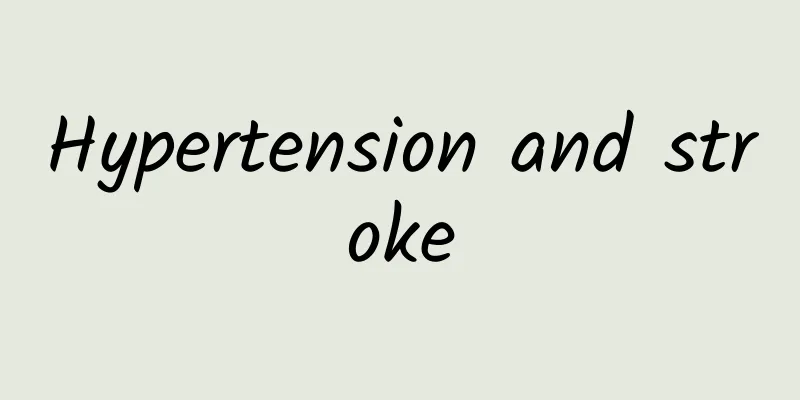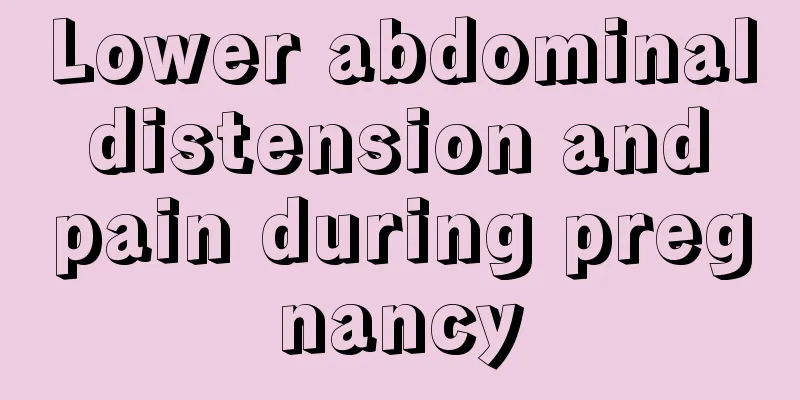Hypertension and stroke

|
Hypertension means that the pressure exerted by blood on blood vessel walls is consistently high. Long-term uncontrolled high blood pressure can lead to stroke, heart attack, heart failure or kidney failure. Blood pressure is usually expressed in two numbers: The higher (systolic) number is the pressure on the artery walls when your heart beats. The lower (diastolic) number is the pressure on the artery walls when your heart is resting between beats. The systolic number is always listed first. Blood pressure is measured in millimeters of mercury (mm Hg). The ideal blood pressure range is around 120/80 mmHg. If an adult's systolic blood pressure is between 120 and 139, but the diastolic blood pressure is less than 90, it only means that the blood pressure is elevated. Hypertension refers to a systolic blood pressure of 140 or higher, or a diastolic blood pressure of 90 or higher, and it remains high for a long time. 1. How does high blood pressure increase the risk of stroke? High blood pressure is a major risk factor for stroke. High blood pressure increases the workload of the heart and over time damages arteries at all levels and numerous organs. People with high blood pressure are more likely to have a stroke than those whose blood pressure is within the normal range. About 87% of strokes are caused by narrowing or blockage of a blood vessel in the brain, which cuts off the blood supply to brain cells. This is called an ischemic stroke. High blood pressure causes damage to the lining of the blood vessels. This causes the arteries to narrow. About 13% of strokes occur when a blood vessel ruptures in or near the brain tissue. This is called a hemorrhagic stroke. Chronic high blood pressure or aging of the blood vessels are the main causes of this type of stroke. High blood pressure strains the blood vessels. Over time, they can no longer withstand the pressure and rupture. Am I at a higher risk for high blood pressure? There are some risk factors that increase the chance of developing high blood pressure, some of which can be improved through self-regulation or treatment, while others are difficult to change. 1. Risk factors that can be improved through self-regulation or treatment include: • Smoking and exposure to secondhand smoke • diabetes • Overweight or obese • High cholesterol • Physical inactivity • Improper diet (high in salt, low in potassium, excessive alcohol consumption). (ii) Factors that cannot be changed or are difficult to control are: • Family history of high blood pressure • Race/ethnicity • Increasing age • Gender (Male) • Chronic kidney disease • Obstructive sleep apnea Economic status and psychosocial stress are also risk factors for hypertension, as they affect a person's access to basic necessities, medications, and health care services, as well as their ability to maintain a healthy lifestyle. 3. How to control high blood pressure? Even if you have had a stroke or heart attack in the past, you can control your high blood pressure and help prevent another stroke or heart attack by doing the following: • Do not smoke and avoid second-hand smoke. • Achieve and maintain a healthy weight. • Eat a healthy diet low in salt, no or low in saturated and trans fats, and limit sweets, red meat, and processed cooked foods. • Eat fruits and vegetables, whole grains, low-fat dairy products, poultry, fish and nuts, including foods rich in potassium. • Make a point to get at least 150 minutes of moderate-intensity physical activity each week. • Take medications as directed to control your blood pressure. • Know what your blood pressure should be and try to keep it at that level. 4. Questions to ask your doctor next time you visit What should my blood pressure be? How often should I take my blood pressure? |
<<: What should you do if your child has strabismus? What ophthalmologists say!
Recommend
Can I do strenuous exercise during menstruation?
Women are absolutely not allowed to do any strenu...
Why does outdoor exercise help slow the progression of myopia?
Now we often hear that taking children to outdoor...
Why do I feel so hunched and painful? It turns out I have osteoporosis!
Recently, a 71-year-old lady visited multiple dep...
What is the endometrial line?
For women, having a healthy body is the greatest ...
How does the endometrium cycle change?
Women’s lives are inseparable from changes in the...
What clothes should I wear when going out due to the novel coronavirus? Is it hygienic to continue wearing the clothes I wear when I get home?
We all know that the new coronavirus is a relativ...
When will the Secret of Picking Up Light be broadcasted? Who is the main actor of the Secret of Picking Up Light?
Yesterday, the youth drama "The Secret of Pi...
How do the left and right ovaries release eggs?
We all know that there are two ovaries on both si...
Can mild cervicitis heal on its own?
Cervicitis is a very common disease for married w...
What ingredients are needed to make clams? How to clean clams?
The flower clams are very popular because of thei...
What are the harms of pelvic effusion to the body
The symptoms of pelvic effusion are a very danger...
What to do with scanty menstruation and what to eat to regulate it
I believe every woman has her own understanding o...
Can I have sex after 13 days of having my IUD inserted?
It is well known that female IUD is a very effect...
What is the function of Impatiens? What is the growth environment of Impatiens like?
Impatiens balsamina (scientific name: Impatiens b...
If I suddenly have chest pain, will there be a risk of sudden death?
One minute with the doctor, the postures are cons...









